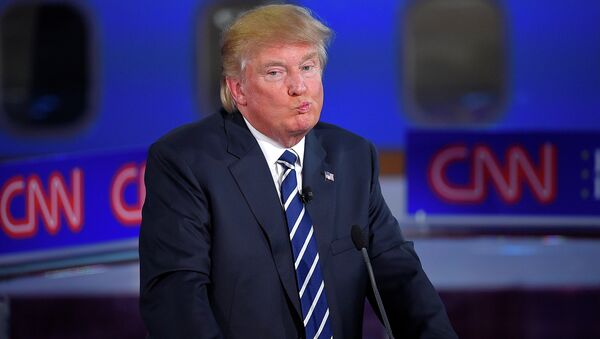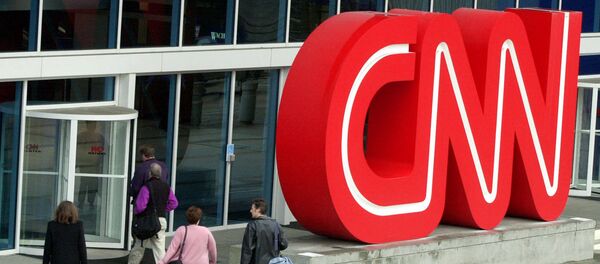“They’re trying to cull CNN from the herd,” a reporter, speaking on background, told Politico.
The White House is still responding to questions from CNN reporters at news briefings, but has not sent a surrogate to appear on any of the network’s shows since early January.
“We’re sending surrogates to places where we think it makes sense to promote our agenda,” a White House official told Politico.
Since the CNN freeze, surrogates from the administration, including Mike Pence, Kellyanne Conway, Sean Spicer, and Reince Priebus, have made their rounds on Sunday shows, but invitations from CNN’s State of the Union, hosted by Jake Tapper, have been declined.
"We invited the Trump White House to offer us a guest to provide clarity and an explanation of what the president just did, especially given so much confusion, even within its own government by those who are supposed to carry out this order,” Tapper said on Sunday. "The Trump White House declined our invitation.”
While many have expressed outrage and panic over Trump “icing out the media,” this type of favoritism, or even hostility, toward certain networks is not a new situation for the White House.
In 2009, former Obama White House communications director Anita Dunn asserted that they would treat Fox News “the way we would treat an opponent,” in an interview with the New York Times.
“As they are undertaking a war against Barack Obama and the White House, we don’t need to pretend that this is the way that legitimate news organizations behave," she said.
It is important to note that the Trump administration has solid reason to believe that not all media outlets are reporting on them fairly.
On Tuesday, Reuters editor-in-chief Steve Adler told staff in a letter to treat the coverage of the Trump administration as they would an authoritarian regime.
The letter cited how the organization covers nations like “Turkey, the Philippines, Egypt, Iraq, Yemen, Thailand, China, Zimbabwe, and Russia,” and urged staff to use that as a template for covering the Trump administration. Adler noted that while covering those governments, journalists routinely “encounter some combination of censorship, legal prosecution, visa denials, and even physical threats to our journalists.”
Georgetown University journalism professor Christopher Chambers told Sputnik News that, while the First Amendment has a special place in America, Trump is not violating that by freezing out CNN, or other media outlets. While it is not a violation, Chambers did say that the move is “risky,” and could lead to authoritarianism.
“If the President doesn't like what the press is saying or doing, he or she can certainly freeze them it by not sending representatives to TV interviews, or not answering their questions at press conferences,” Chambers explained. “But putting up a wall between the President and legitimate legacy news outlets because he doesn't like the word ‘authoritarian’ is risky as a ‘self-fulfilling prophesy’ with Reuters and CNN.”
Chambers added that, “as a step in controlling the press, authoritarian regimes first demonize and delegitimize it; freezing out merely affirms worst fears. Nevertheless, as long as the President isn't directly using government resources and processes to hamper or destroy news outlets, he's not violating the First Amendment. Reuters and CNN certainly have the right to complain, but their rights are not being trampled on.”
Chambers pointed out that indirect attacks are still possible, much like how the Obama administration targeted whistleblowers.
“However, there are indirect attacks which are possible, such as getting courts to limit the ‘actual malice’ standard in defamation and matters of public concern, or the ‘newsworthiness’ standard, where invasion of privacy is an issue. Trump and his advisers have made statements to that effect. Another example is how the Obama administration doggedly went after government leakers, whistleblowers and hackers, and it's indirect harmful chilling effect on the press's ability to do its job.”





